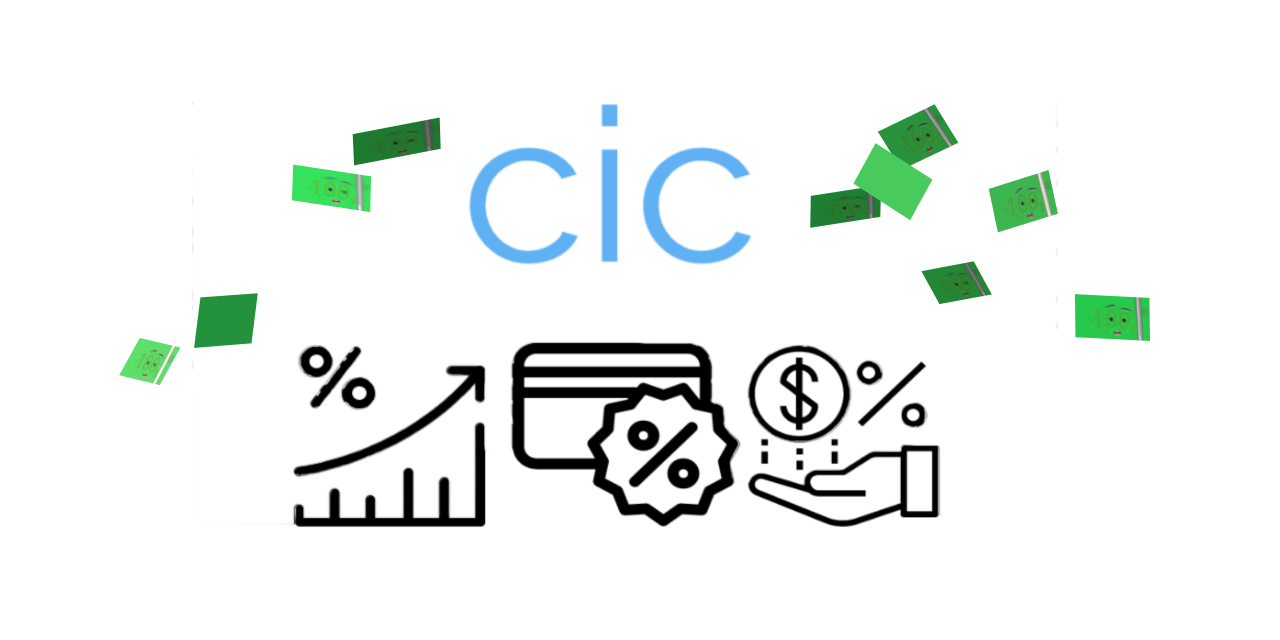Compound interest is one of the most powerful forces in investing. Simple interest simply means a set percentage of the principal for the period, and is rarely used in practice. On the other hand, compound interest is applied to both loans, investments and deposit accounts.
-
Calculate future amount for loan or investment
f = p × ((r/100)+1) ^ n -
Calculate principal amount for loan or investment
p = f / ((r/100)+1) ^ n -
Calculate interest rate for loan or investment
r = (f/p) ^ 1/n - 1 -
Calculate number of periods for loan or investment
n = ln(f/p) / ln(1+r) -
Calculate periodic compounding future amount for loan or investment
f = p × (((r/100)/n)+1) ^ n -
Calculate effective annual interest rate for loan or investment
e = (1+((r/100)/n)) ^ n − 1 -
Calculate present value of annuity
v = p × (1 − (1+r) ^ −n) / r -
Calculate value of each payment for annuity
p = v × r / (1 − (1+r) ^ −n)
f = p × ((r/100)+1) ^ n
f = Future Amount (£)
p = Principal Amount (£)
r = Interest Rate (%)
n = Number of Periods
s = Type of Period (days-weeks-months-years)
If the £1000 loan was for a period of 6 months at 10% interest rate, what is the future amount?:
1771.56 = 1000 × (0.1+1) ^ 6 months
£1,000 × (1.10 × 1.10 × 1.10 × 1.10 × 1.10 × 1.10) = £1771.56
f = £1771.56
p = £1000
r = 10% (10/100 for decimal)
n = 6
s = months
p = f / ((r/100)+1) ^ n
f = Future Amount (£)
p = Principal Amount (£)
r = Interest Rate (%)
n = Number of Periods
s = Type of Period (days-weeks-months-years)
What principal amount do you need to invest, to get £2000 in 5 years at 10% interest rate?:
1241.84 = 2000 / (0.1+1) ^ 5 years
£2,000 / (1.10 × 1.10 × 1.10 × 1.10 × 1.10) = £1241.84
f = £2000
p = £1241.84
r = 10% (10/100 for decimal)
n = 5
s = years
r = (f/p) ^ 1/n - 1
f = Future Amount (£)
p = Principal Amount (£)
r = Interest Rate (%)(x100 for percentage)
n = Number of Periods
s = Type of Period (days-weeks-months-years)
You have £1,000, and want it to grow to £2,000 in 5 Years, what interest rate do you need?:
0.1487 = (2000/1000) ^ 1/5 years - 1
(£2000/£1000) ^ 1/5 - 1 = 0.1487 x 100 = 14.87%
f = £2000
p = £1000
r = 14.87%
n = 5
s = years
(note: it uses the natural logarithm function ln)
n = ln(f/p) / ln(1+r)
f = Future Amount (£)
p = Principal Amount (£)
r = Interest Rate (%)
n = Number of Periods
s = Type of Period (days-weeks-months-years)
How many years will it take to turn £1,000 into £2,000 at 10% interest rate?:
7.27 = ln(2000/1000) / ln(1+(r/100))
ln(£2000/£1000) / ln(1+(10/100)) = 7.27 years
f = £2000
p = £1000
r = 10% (10/100 for decimal)
n = 7.27
s = years
f = p × (((r/100)/n)+1) ^ n
f = Future Amount (£)
p = Principal Amount (£)
r = Interest Rate (%)
n = Number of Periods within the year (Semiannually=2,Quarterly=4,Monthly=12,Daily=365,Continuously=2.71828182845904523536028747135266249775724709369995957
49669676277240766303535475945713821785251664274)
If £1000 was invested at 10% interest rate, "Compounded Semiannually"; what is the future amount?:
1102.5 = 1000 × (((10/100)/2)+1) ^ 2
£1000 × (((10/100)/2)+1) ^ 2 = £1102.50
f = £1102.50
p = £1000
r = 10% (10/100 for decimal)
n = 2
e = (1+((r/100)/n)) ^ n − 1
e = Effective Annual Interest Rate (%)(x100 for percentage)
r = Nominal Interest Rate (%)
n = Number of Periods within the year (Semiannually=2,Quarterly=4,Monthly=12,Daily=365,Continuously=2.71828182845904523536028747135266249775724709369995957
49669676277240766303535475945713821785251664274)
What effective annual interest rate do you get when the ad says "6% compounded monthly"?:
0.06168 = (1+((6/100)/12)) ^ 12 − 1
0.06168 x 100 = 6.168%
e = 6.168%
r = 6% (6/100 for decimal)
n = 12
v = p × (1 − (1+r) ^ −n) / r
v = Present Value of Annuity (£)
p = Value of Each Payment for Annuity (£)
n = Number of Periods
r = Interest Rate per Period (%)
What is the present value for annuity of £400 a month for 5 years?, use a monthly interest rate of 1%:
17982.02 = 400 x (1 - (1+(1/100)) ^ -60) / (1/100)
£400 x (1 - (1+(1/100)) ^ -60) / (1/100) = £17982.02
v = £17982.02
p = £400
n = 60 (12 months x 5 years)
r = 1% (1/100 for decimal)
p = v × r / (1 − (1+r) ^ −n)
p = Value of Each Payment for Annuity (£)
v = Present Value of Annuity (£)
n = Number of Periods
r = Interest Rate per Period (%)
Say you have £10,000 and want to get a monthly income for 6 years out of it,
how much could you get each month?, assume a monthly interest rate of 0.5%:
165.73 = 10000 × (0.5/100) / (1 − (1+(0.5/100)) ^ −72)
£10000 × (0.5/100) / (1 − (1+(0.5/100)) ^ −72) = £165.73
p = £165.73
v = £10000
n = 72 (12 months x 6 years)
r = 0.5% (0.5/100 for decimal)
Go - Go is an open source programming language that makes it easy to build simple, reliable, and efficient software.
Please read CONTRIBUTING.md for details on our code of conduct, and the process for submitting pull requests to us.
We use SemVer for versioning. For the versions available, see the tags on this repository.
Ganesh Niruban
See also the list of contributors who participated in this project.
This project is licensed under the GNU General Public License v3.0 - see the LICENSE.md file for details.
